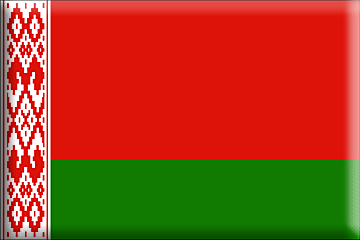Belarus deports pro-democracy activists to Russia
 Minsk - Belarusian police on Wednesday deported a pair of foreign pro-democracy activists, as opposition groups held rare public gatherings throughout the former Soviet republic.
Minsk - Belarusian police on Wednesday deported a pair of foreign pro-democracy activists, as opposition groups held rare public gatherings throughout the former Soviet republic.
Plain-clothes KGB agents meeting an train arriving in the Belarusian capital Minsk from Moscow initially detained three members of the Russian pro-democracy Oborony (Defence) youth group.
The cops later charged and placed on a return train to the Russian capital two of the activists, Oborony leader Oleg Kozlovsky and associate Aleksander Savelev, said Andrei Kim, a Oborony spokesman.
Police reportedly charged the pair with "swearing in public," before sending them back to Russia. A third activist, Maksim Talykov, also a Russian national, was arrested and taken into custody, Kim said.
The detentions came on a semi-official Belarusian holiday known as Will Day, celebrated to mark a short-lived independant Belarusian republic formed in 1918, and destroyed by invading Soviet troops months later.
Belarusian opposition to the authoritarian regime of President Aleksander Lukashenko for more than a decade has used the March 25 anniversary date as a pretext to gather in public and discuss possible democratic changes in Belarusian government, a potential jailing offence during the rest of the year.
Lukashenko's government, citing a need to preserve stability usually represses public suggestions of change needed to the organization of the Belarusian state, but allows the Will Day gatherings as it supports Belarusian independence from other states.
Opposition groups held meetings in 25 Belarusian cities throughout the day. Events marking Will Day included talks with writers and poets, the public display of 1918-era Belarusian national emblems, information hand-outs, and discussions in the Belarussian language, Gubarich said.
"Our goal is to get our message out to a larger number of our fellow citizens, than is normally possible," Gubarevich said, according to a Belapan news agency report.
Turn out was nonetheless thin, with in some cases as few as a dozen activists turning out in provincial Belarusian cities, and less than 100 in the capital Minsk.
Police were reported present at all the services, but in general did not interfere. Law enforcers in the north Belarusian city Vitiebsk confiscated opposition brochures, and arrested three men carrying banned 1918-era Belarusian flags.
Aleksander Milinkevich, leader of the Belarusian opposition, in a meeting with Minsk journalists said "We can interpret this day in different ways, but we must agree on the most important thing, to get Lukashenko out of power by whatever means possible." (dpa)